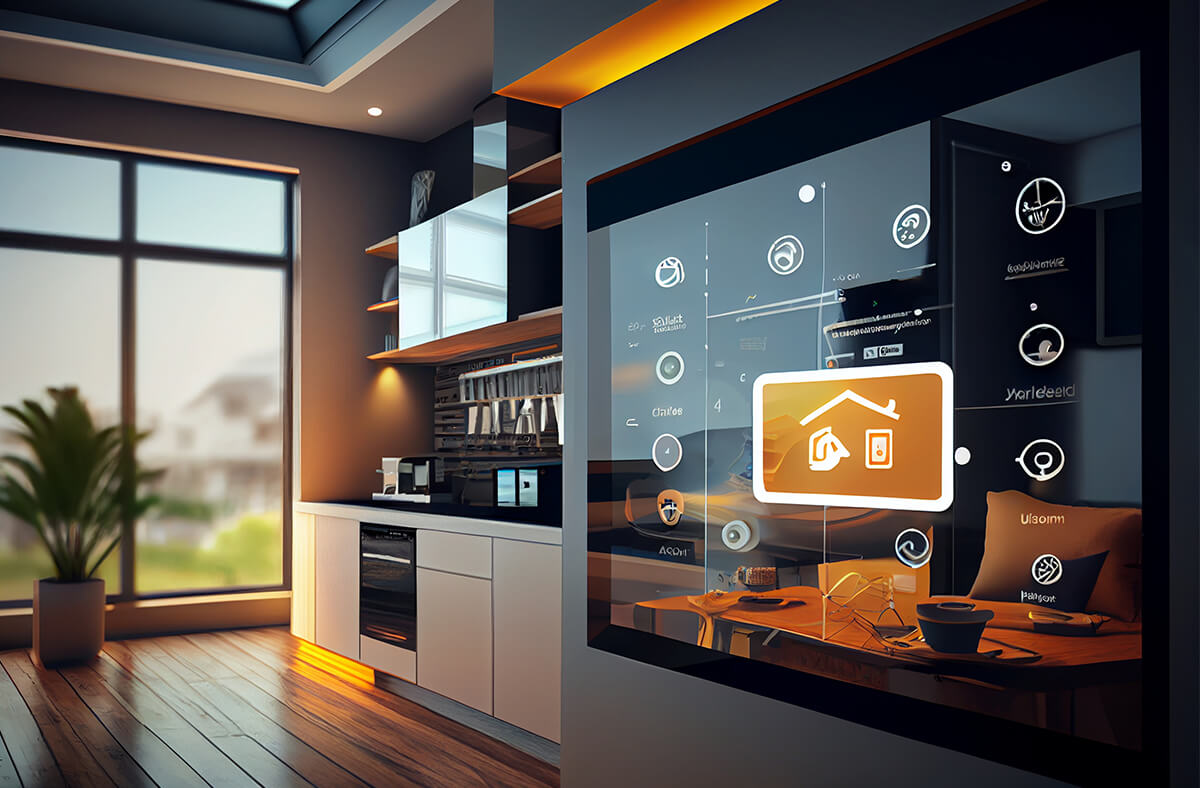Introduction
The concept of a “smart home” has gone from science fiction to reality, transforming the way we live, work, and interact with our surroundings. In today’s world, technology has become an integral part of our lives, and the smart home is at the forefront of this digital revolution. In this article, we will explore the evolution of smart homes, the current state of the technology, and what the future holds for these intelligent living spaces.
The Journey to Smart Homes
The idea of a smart home traces its roots back to the early 20th century, with visionary thinkers and inventors imagining a future where homes would be equipped with intelligent systems. However, it wasn’t until the late 20th and early 21st centuries that technology began to catch up with these grand ideas.
- The Birth of Home Automation: The first steps towards smart homes were taken with the advent of home automation. In the 1970s and 80s, systems like X10 allowed homeowners to remotely control appliances and lighting, setting the foundation for what was to come.
- Internet of Things (IoT): The true game-changer for smart homes came with the rise of the Internet of Things. IoT refers to the interconnectedness of everyday objects and devices via the internet. This interconnectedness paved the way for smart devices to communicate and work together seamlessly.
- Voice Assistants and AI: Voice-activated virtual assistants like Amazon’s Alexa and Google Assistant have become central to the smart home experience. These AI-driven platforms allow users to control various devices and systems through simple voice commands.
The Current State of Smart Homes
Today, a modern smart home is a symphony of interconnected devices and systems designed to make our lives more convenient, efficient, and secure. Here are some of the key components and features of a typical smart home:
- Smart Lighting: You can control the lighting in your home remotely, adjust the color and brightness, and even schedule lighting changes to match your preferences or mimic your presence when you’re away.
- Smart Thermostats: These devices learn your heating and cooling habits and adjust accordingly, saving energy and money.
- Security Systems: Smart cameras, doorbell cameras, and sensors allow homeowners to monitor their property and receive alerts on their smartphones in real-time.
- Voice Control: Voice assistants have become the central hub for controlling smart devices, managing calendars, setting reminders, and answering questions.
- Entertainment Systems: Smart TVs, streaming devices, and audio systems can be controlled and customized for an immersive home entertainment experience.
- Smart Appliances: From refrigerators that tell you when you’re running low on groceries to ovens that can be preheated remotely, appliances are becoming increasingly intelligent.
The Future of Smart Homes
The evolution of smart homes is far from over. Here are some exciting trends and developments that we can expect in the near future:
- Greater Integration: As more devices become smart, integration will become even more crucial. Expect to see more seamless communication between devices and platforms.
- Energy Efficiency: Smart homes will continue to prioritize energy efficiency, with innovations in renewable energy integration, better insulation, and more intelligent energy management.
- Health and Wellness: Smart homes will play a role in monitoring and improving our health and well-being. From AI-driven health assessments to smart sleep environments, our homes will become more health-conscious.
- Sustainability: Sustainability will be a driving force, with smart homes incorporating eco-friendly materials, water-saving systems, and waste reduction technologies.
- Augmented Reality (AR) and Virtual Reality (VR): AR and VR will find their way into our homes, transforming how we interact with our surroundings, work, and play.
- Enhanced Security: Security will remain a top priority, with advanced AI-driven systems, facial recognition, and predictive analytics to keep homes safe.
Conclusion
The concept of the smart home has come a long way since its inception, and it continues to evolve at a rapid pace. With advancements in technology, the integration of AI, and a growing focus on sustainability and well-being, the future of smart homes promises to be exciting and transformative. As these intelligent living spaces become more accessible and affordable, we can look forward to a world where our homes truly cater to our needs, making our lives more convenient, efficient, and enjoyable.

